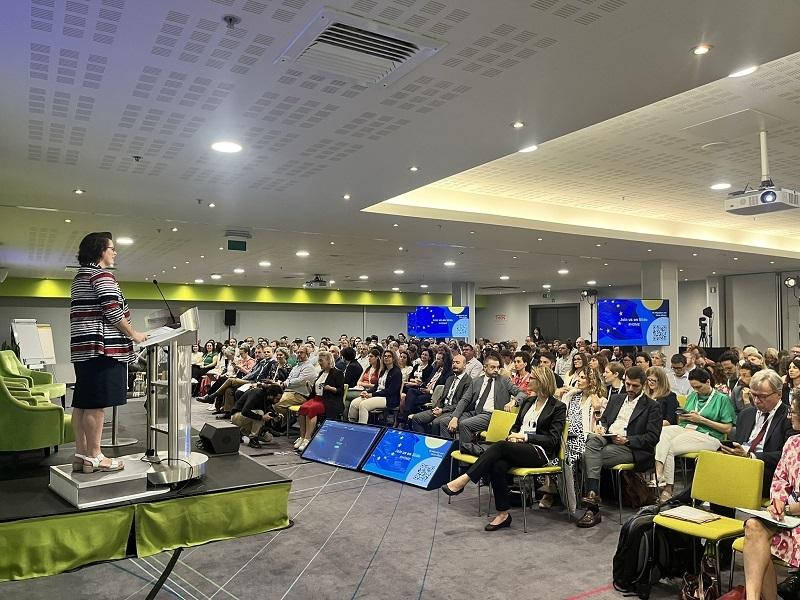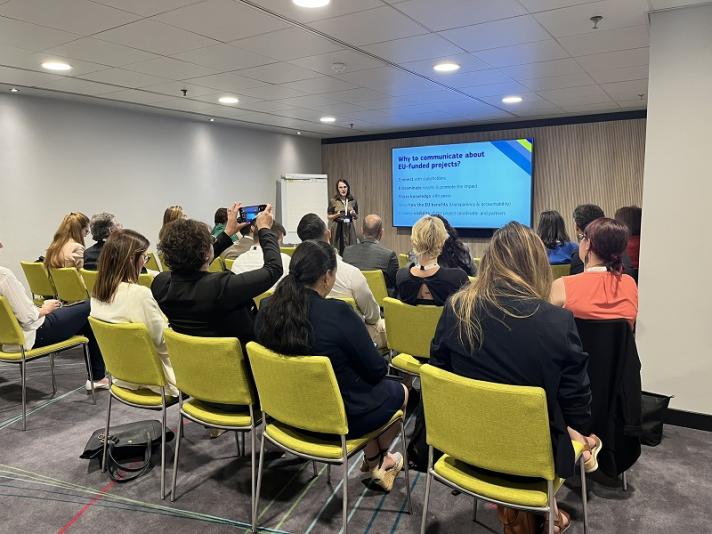
On 25 June 2024, over 300 beneficiaries of HOME funds in the fields of migration, border management and security gathered in Brussels, together with the EU national authorities managing the Funds. During workshops and policy-oriented sessions, coordinators of the EU-funded projects learned about the Commission’s plans for funding in the next years and how to deliver better results.
The “Priorities of the Home affairs funds” conference focused on the Commission’s policy priorities, including the implementation of the Migration Pact, support for 4.3 million Ukrainians who are under temporary protection in the EU, actions to stop organised crime, and new EU border management. EU-funded projects are essential to support these priority areas with concrete actions on the ground.
Growing importance of the EU Home Affairs funds
This event came timely as the EU is now in the middle of the 7-year financial cycle. The Commission and EU countries are evaluating which initiative to support in the next 2,5 years. For the period 2021-2027, Home affairs funds nearly doubled (compared to the previous period) to almost EUR 30 billion. They support among others migration management, border protection or fight against corruption, terrorism and organised crime, including migrant smuggling. For 2025, the Commission is proposing to invest almost EUR 3,5 billion in Home Affairs actions under AMIF, BMVI and ISF funds.
The conference was an opportunity for project coordinators and national authorities to signal what works well and what can be improved. EU officials informed participants about the innovations in EU fund management and how the EU institutions audit and control the projects to ensure that the money is spent according to the rules in place. More importantly, participants were able to network and share good practices in several workshops which will help deliver more impactful results.
Some participating projects
- Migration
- Wiser project helps migrant women find jobs, acquire new skills and start their own businesses. The project is in its early stage and groups organisations from 8 EU countries.
- POWGEN project trains migrants and helps them get jobs in fields related to renewable energy. It started in 2024, aims to improve the employability of 150-250 people and partner with 15-30 companies.
- Protection of children online
- The Cesagram project raises awareness about online grooming among young people. It explains how children can go missing because they are afraid of telling adults about their experience with grooming. The project helps victims and aims to prevent young people from going missing.
- Anti-terrorism
- TCO Cluster – a group of projects aiming to inform internet hosting service providers about the Regulation on terrorist content online (TCO) and their new obligations. These projects make the online space more secure by helping the hosting service providers report and remove terrorist content online, while respecting human rights and fundamental freedoms.
Details
- Publication date
- 26 June 2024
- Author
- Directorate-General for Migration and Home Affairs

